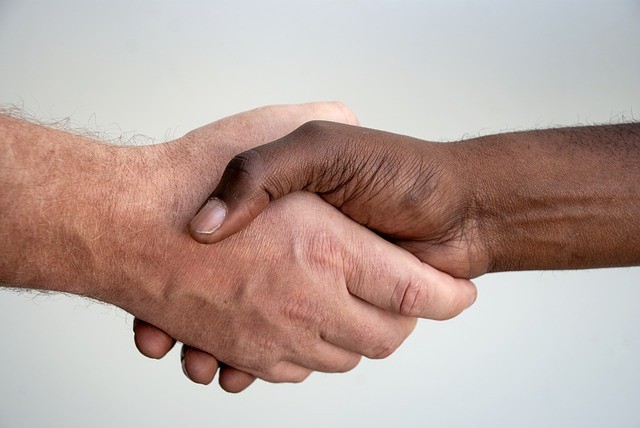4 Racist Habits Latinos Have to Stop Immediately

Racist habits are hard to kill but while the practice is not easy to forgive, Latinos seem to be a lot more forgiving with it.
Whether we like it or not, racist habits also exist even within Latinos.
As HipLatina said, activism starts in people's own personal circles. Killing racist habits starts with surrounding yourselves with open-minded individuals.
If Latinos don't call out other Latinos, we're not doing enough. Let's dismantle the racism that exists within the Latino community.
"Pelo Malo"
In 2020, you'd think the concept of "pelo malo" or "bad hair" for curly or textured hair has already died down. But it hasn't.
An older generation of Latinos still says this all the time.
According to We are Mitu, this description goes beyond aesthetic preference across Latinos in the U.S. It also serves as a bigger sense of rejection to African ancestry.
So staying quiet when your Tia refers to curly hair as "pelo malo" is still an act of complacency that has to be stopped.
Calling out someone who still lives by it might help an entire generation of black Latinos growing up with discrimination.
A Venezualan film tackling this issue gave life to the reality of racism among Latinos, said NPR.
Adhering to White Beauty Standards
Afro-Latino and Indigenous beauty has been often underrepresented and practically invisible is because many within the community still adhere to white beauty standards.
Darker skinned Latinas are often undervalued over whiter complexions, straighter hair and other Eurocentric facial features.
As said in Latino Rebels, this premise excludes women of color and eliminates the idea of difference.
The mainstream beauty industry has long-held onto the idea of white beauty, denying "other" notions of beauty rather than encouraging women to be accepted for who they are.
This also includes calling people "moreno" or "negrito" instead of their real name.
Many young Afro-Latinos have proudly embraced terms like these, but many older Latinos still refer to black people by the color of their skin.
Doing so makes the term demeaning in so many ways.
If your abuela calls someone La Morenita, ask her to call them by their name instead. It may be easier said than done but maybe it would work.
Embracing "Mejorando la Raza"
Relatives have probably told you or any other people your age about "mejorando la raza" or "bettering the race."
It basically means marrying a white or lighter-skinned person to have "white-passing" babies, therefore making "better" looking babies.
Young and woke Latinos are probably aware of this already by some are still sticking to this awful mentality.
Adhering to this not only contributes to anti-blackness but also harms the Afro-Latino community.
On top of that, Latino is not actually a race.
Denying Racism Altogether
Denying racism or erasing its existing whatsoever may be normal for many Latinos, but it's still a racist habit.
Saying, "I am not a racist but..." does in fact mean who acknowledge that there is racism, and you're adhering to it.
The first step here, and a key factor to fight this is educating yourself.
Anti-blackness stems from lack of education, especially from previous generations.
Regardless of whoever it is, it's still important to education someone who is denying racism. It is important for everyone to understand the differences in culture and heritage.
Subscribe to Latin Post!
Sign up for our free newsletter for the Latest coverage!














